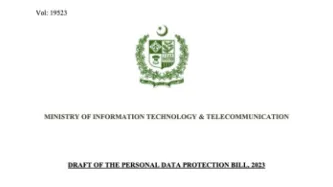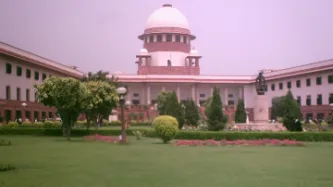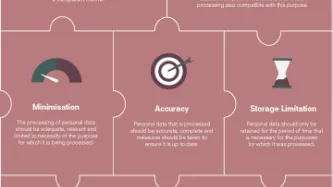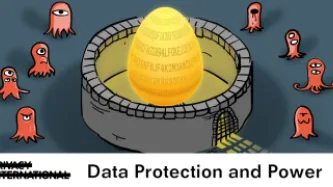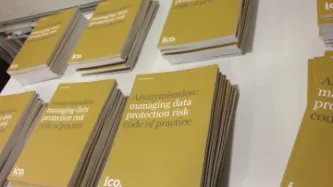Advanced Search
Content Type: News & Analysis
Privacy International (PI) is concerned by developments in Pakistan regarding the enactment of the Draft Personal Data Protection Bill, 2023 and the opaque process which will see the bill become law.
The Bill was published on 19 May 2023 by the Ministry of Information Technology and Telecommunication ('MITT'). However no open and inclusive consultation was open for comments to be submitted to the MITT. In a concerning development it was reported that the Bill was approved by the Federal…
Content Type: News & Analysis
Privacy International collaborated with the Carter Center as part of a pre-election assessment team focussing on the use of technology in the run up to and during the Kenyan election which took place 9 August.
In the context of this pre-election assessment, PI travelled to Nairobi between 4th-10th July 2022 in order take a deeper look at issues connected to voting technologies being used in the Kenyan elections with a particular focus on the implementation of the Data Protection Act.
PI first…
Content Type: News & Analysis
The report on disinformation by the UN Special Rapporteur on the promotion and protection of the right to freedom of opinion and expression follows a growing trend by international bodies (including the Organization of American States and the European Commission) to assess and regulate the global phenomenon that is disinformation.
The report strongly links the spread of disinformation with the gratuitous data collection and profiling techniques utilised by the online…
Content Type: News & Analysis
Uganda's Presidential election in January 2021 resulted in the incumbent President Museveni winning his sixth term in office, having held power for 35 years. The election took place amidst a global pandemic and the run up to election day was fraught. Violence left dozens dead and hundreds more arrested, including the opposition candidate Bobi Wine. Mass rallies and in person campaign meetings were banned due to Covid restrictions and political parties in Uganda were encouraged to conduct “…
Content Type: News & Analysis
PI is collaborating with The Carter Center election observation mission in the run up to and after Myanmar's national election on November 8th. The Carter Center is a US based NGO that has been invited to observe 111 elections in 39 countries since 1989. It has maintained a presence in Myanmar since 2013 when it's office was established in Yangon, and carried out long term observation for the 2015 election as well as 2020. The international election observer mission (IEOM) assesses the…
Content Type: News & Analysis
Humanitarian organisations are defined by their commitment to core, apolitical principles, including: humanity, impartiality, neutrality, independence and to “do no harm”.
And yet the ways data and technology are being used in the world today are often far from being apolitical, humane, impartial, neutral and independent, and in many instances many actors are using technology to exploit people, failing to protect and empower many individuals and communities - in particular those most in need…
Content Type: News & Analysis
GDPR was hard won. PI, together with other civil society actors, fought from the beginning for a version of the law that offers the strongest rights and protections in the face of intense industry lobbying.
Holding the hidden data ecosystem to account
Two years ago, we committed to using GDPR to seek to hold to account the hidden data ecosystem - those companies that amass and exploit large amounts of our data for profit.
Here’s some of the action we’ve taken:
In Nov 2018,…
Content Type: News & Analysis
Political campaigns around the world have turned into sophisticated data operations. They rely on data- your data- to facilitate a number of decisions: where to hold rallies, which States or constituencies to focus resources on, which campaign messages to focus on in which area, and how to target supporters, undecided voters, and non-supporters.
While data driven political campaigns are not new, the granularity of data available and the potential power to sway or suppress voters through that…
Content Type: Long Read
Image credit: Emil Sjöblom [ShareAlike 2.0 Generic (CC BY-SA 2.0)]
Prepaid SIM card use and mandatory SIM card registration laws are especially widespread in countries in Africa: these two factors can allow for a more pervasive system of mass surveillance of people who can access prepaid SIM cards, as well as exclusion from important civic spaces, social networks, and education and health care for people who cannot.
Mandatory SIM card registration laws require that people provide personal…
Content Type: Long Read
IMAGE SOURCE: "My Phone Bought This" by oliver t is licensed under CC BY-NC-ND 4.0.
LAST UPDATE: 16th May 2022.
Mandatory SIM card registration laws require people to provide personal information, including a valid ID or even their biometrics, as a condition for purchasing or activating a SIM card. Such a requirement allows the state to identify the owner of a SIM card and infer who is most likely making a call or sending a message at any given time.
SIM card…
Content Type: Long Read
Image attribution: By Legaleagle86 at en.wikipedia, CC BY-SA 3.0.
In a long-anticipated judgment, the Indian Supreme Court has ruled that India's controversial identification system Aadhaar is Constitutional. They based their conclusion on notes that there are sufficient measures in place to protect data, and that it is difficult to undertake surveillance of citizens on the basis of Aadhaar.
But there is some good in this ruling. The court has demanded that the Government introduce…
Content Type: News & Analysis
“The gathering and holding of personal information on computers, data banks, and other devices, whether by public authorities or private individuals or bodies, must be regulated by law.”
- UN Human Rights Committee, General Comment No. 16, 1988
Underpinning the obligations of those who process personal data, both public and private institutions, the grounds on which they may do so, and the rights of individuals, there are various data protection principles…
Content Type: Long Read
National and International civil society organisations (CSOs) play vital roles in many aspects of our societies as watchdogs of state powers, as representatives of the voices of the people, as experts to inform and educate an array of stakeholders.
One of our key lessons learned from three decades of work, including 10 years with the Privacy International Networkto build a global privacy movement,promoting and advocating for the highest privacy and data protection safeguards has been…
Content Type: News & Analysis
This month Brazil adopted a new data protection law, joining the ranks of more than 120 countries which have adopted such legislation, providing individuals with rights against the exploitation of their personal data. But after a veto from the Brazilian president, the law lacks an independent authority in charge of its application, which can severely undermine its impact.
When drafting data protection bills, one of the most important and often politically contentious issue tends to be their…
Content Type: Long Read
The European Union's new data privacy law (General Data Protection Regulation, better known as GDPR) takes effect today May 25th, 2018, after a two-year transition period. Despite some companies appearing to believe otherwise, and many articles misrepresenting its contents, the GDPR will have a significative impact beyond the European Union, and it will extend many of its data privacy safeguards to users’ data globally.
There are a number of reasons that explain this impact:
Obligations…
Content Type: Press release
WASHINGTON, D.C. – U.S. companies should adopt the same data protection rules that are poised to go into effect in the European Union on May 25, Public Citizen, the Center for Digital Democracy and Privacy International said today.
In a sign-on letter, 28 groups are calling on some of the world’s largest companies – including Facebook, Google and Amazon, as well as digital advertisers like Nestle, Walmart and JPMorgan Chase – to use Europe’s impending General Data Protection Regulation (GDPR…
Content Type: Press release
Tomaso Falchetta, PI's Head of Advocacy and Policy team said:
"The adoption of the Data Protection Act represents an important reform which strengthens the rights of individuals and increases obligations for the industry. The Act opens the way for the application of the EU General Data Protection Regulation in the UK, and regulates the processing of personal data by companies, public authorities, law enforcement, and intelligence agencies. PI particularly welcome increased powers for the…
Content Type: Long Read
To celebrate International Data Privacy Day (28 January), PI and its International Network have shared a full week of stories and research, exploring how countries are addressing data governance in light of innovations in technology and policy, and implications for the security and privacy of individuals.
At the core of data protection debates, there is a power play between empowering individuals to control their data and empowering those who use (or want to) use their data.
By…
Content Type: News & Analysis
It has been almost 40 years since the Council of Europe’s Convention 108 for the Protection of Individuals with regard to Automatic Processing of Personal Data was signed. The Convention was the first binding treaty dealing with privacy and data protection that recognised the necessity to “reconcile the fundamental values of the respect for privacy and the free flow of information between peoples” and is the reason why we celebrate Data Protection Day annually on 28 January.
It has since been…
Content Type: News & Analysis
This post was written by Chair Emeritus of PI’s Board of Trustees, Anna Fielder.
The UK Data Protection Bill is currently making its way through the genteel debates of the House of Lords. We at Privacy International welcome its stated intent to provide a holistic regime for the protection of personal information and to set the “gold standard on data protection”. To make that promise a reality, one of the commitments in this government’s ‘statement of intent’ was to enhance…
Content Type: Press release
While welcoming the objective of the Bill, Privacy International has sent a briefing to the House of Lords and a letter to Minister of State for Digital, Matt Hancock MP, outlining key concerns and recommendations. The Bill's stated aim is “to create a clear and coherent data protection regime”, and to update the UK data protection law, including by bringing the EU General Data Protection Regulation (GDPR) and the Data Protection Law Enforcement Directive (DPLED) - into the UK domestic system.…
Content Type: News & Analysis
The major overhaul of data protection laws in Europe is finally over, after three years of arduous and sustained political and lobbying activity by all those with a major stake and interest, including us at Privacy International (See our initial analysis of the two laws in 2012). We welcome this long overdue closure, but is this 91-articled, 200-paged piece of legislation been worth the enormous effort and no doubt millions of euros, dollars and pounds spent on it?
The legislative package…
Content Type: News & Analysis
The argument that human rights are a Western concept and that privacy is not a concern for the developing world was rejected last week in a two-day civil society seminar held in Dakar, Senegal.
More than 30 members of West African civil society participated in the seminar on privacy and data protection, organised by Jonction with the support of the Senegalese Commission for Data Protection. Participants denounced the shortcomings of governments and the private sector in…
Content Type: News & Analysis
A full analysis of the UK Information Commissioner's "Anonymisation code of practice: managing data protection risk" will take time and working knowledge of how the code is used in practice.
At the launch, the ICO signalled that while they believed the code was now up to scratch, they were open to additions and clarifications given that it is the first document of its kind in the world. We applaud them for this; the code is likely to be copied internationally, so it is particularly…
Content Type: News & Analysis
Tuesday’s letter to Google CEO Larry Page, personally signed by 29 European data protection authorities, ordered the corporation (inter alia) to give users greater control over their personal information. The notions of trust and control are emphasised throughout the letter, and Google is urged to "…develop new tools to give users more control over their personal data" and "collect explicit consent for the combination of data for certain purposes". It is good news that the…
Content Type: News & Analysis
Last evening (in India, that is) we got some very good news. Earlier, an online news item in a major newsmagazine described a forthcoming report from the Parliamentary Standing Committee on Finance, a cross-party body created to study Bills being presented for consideration in Parliament, as having expressed its reservations about the NIAI Bill, that they would recommend recasting it. The NIAI Bill seeks to set up a National Information Authority, whose job is to take over the functioning of…
